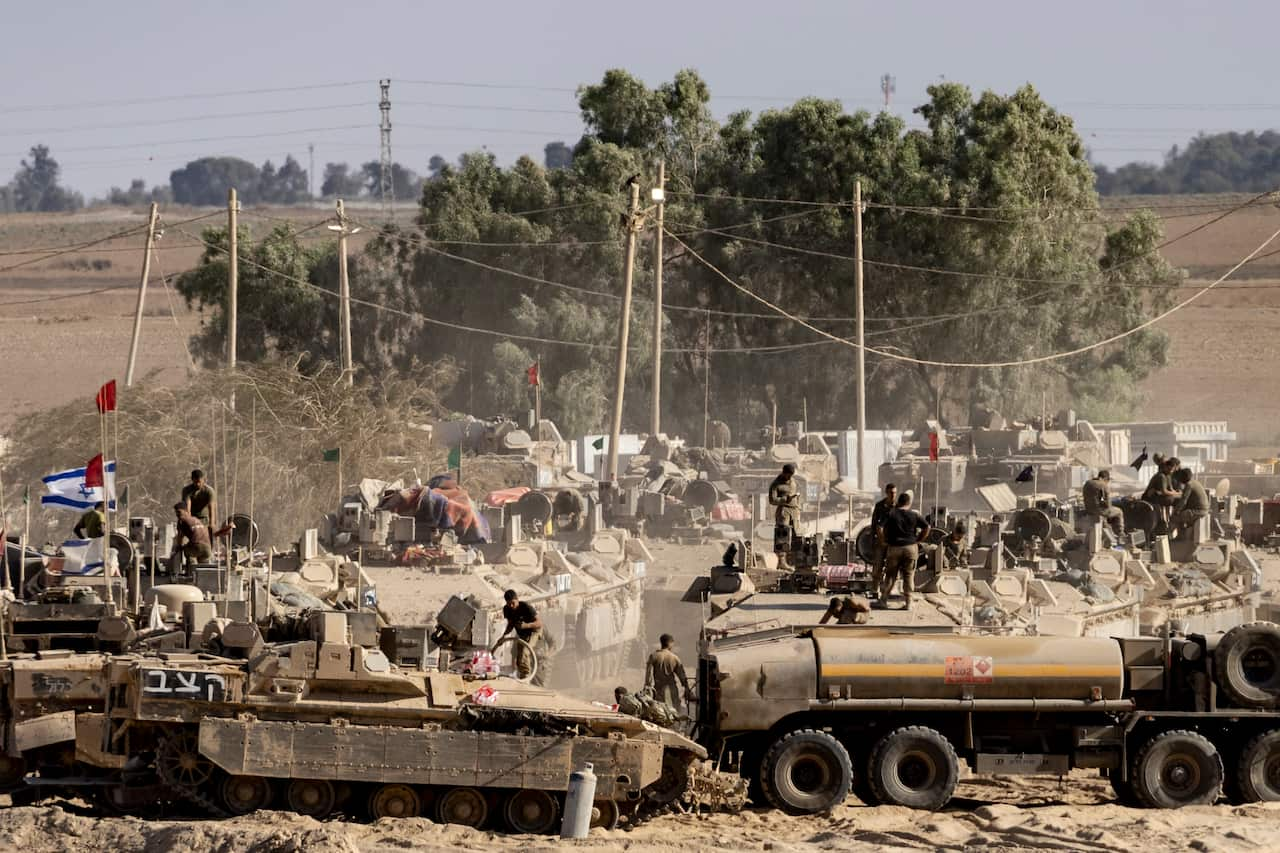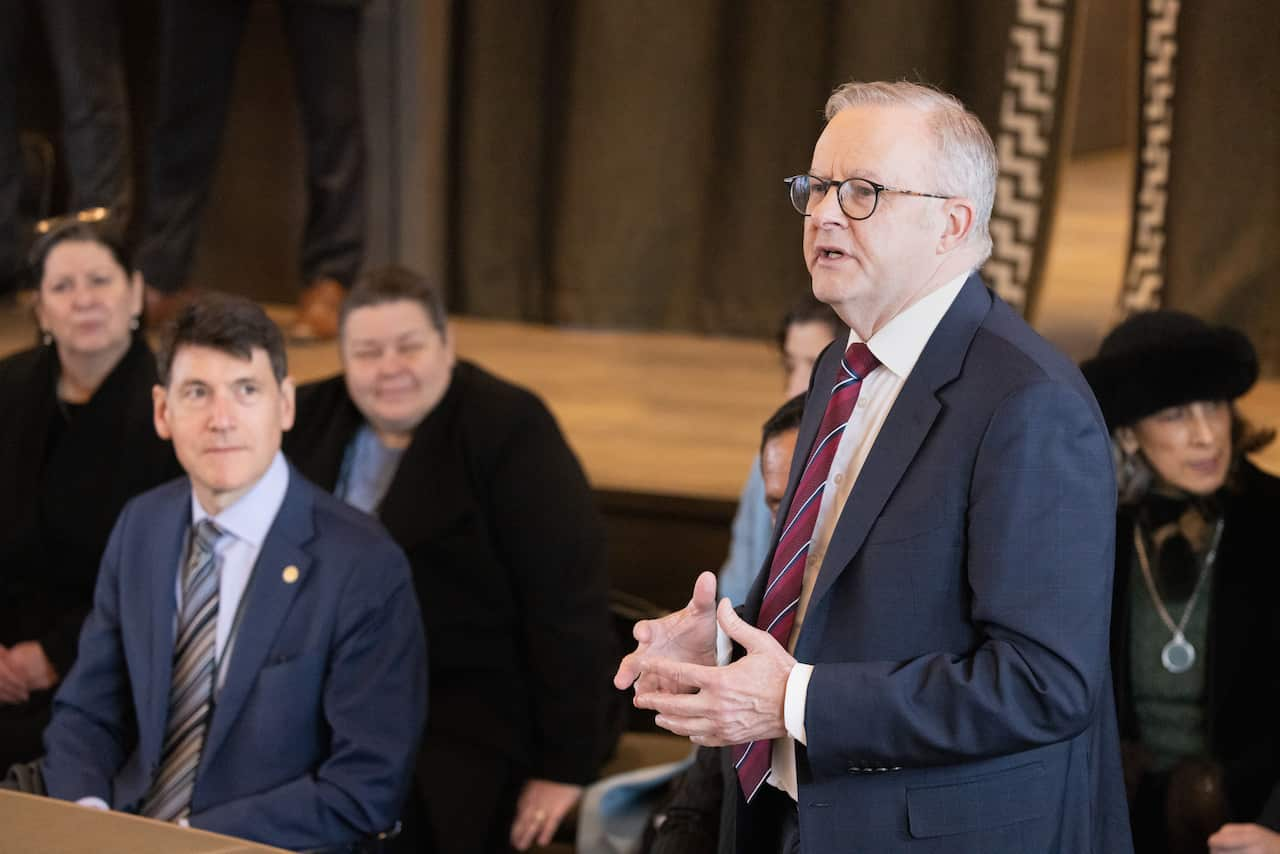Key Points
- Germany is suspending all exports of military equipment that could be used in Gaza.
- Australia's defence minister says the country's part in the Lockheed Martin supply chain is a separate issue.
- Richard Marles argues Australia's exports are not on the same scale as Germany and have a limited impact.
Acting Prime Minister Richard Marles says any action regarding Australia's exports of component parts to Israel are unlikely to have an impact on the war in Gaza, after reiterating that Australia did not supply weapons to Israel.
Marles was asked on Sunday whether Australia would follow Germany's lead to suspend all exports of military equipment that could be used in Gaza.
German Chancellor Friedrich Merz, a conservative whose support for Israel was a foundation of his election campaign, last week announced he would not authorise any exports of military equipment that could be used in Gaza "until further notice".
Speaking on ABC's Insiders program on Sunday, Marles was questioned on whether Australia would cease exports of armoured steel and components for F-35 jets to Israel.
Marles said Australia did not supply weapons to Israel and there was "a lot of misinformation" around this issue.
When pressed further on the issue of components, he said that Australia was part of the F-35 supply chain and had been for decades.
"That is a multi-lateral arrangement with supply chains that are organised by Lockheed Martin in the United States and have multiple supplies in respect of all of those supply chains," he said.
But he said that was "a very different question" to the issue of being an arms exporter.
Marles said components were "a separate issue, and this is about having an impact on Israel".

"There is no step that we can take here which has any impact in relation to the activities of Israel. And it is a very different question to what is being talked about in relation to Germany which obviously has a significant supply in to Israel," he said.
"We want to do everything we can to see an end to the hostilities that are occurring in Gaza. The most important thing that we can do is use our international voice here and that's what we have been doing."
After the US, Germany is the next biggest supplier of arms to Israel.

The Greens and pro-Palestinian groups have been pressuring the government over its military trade arrangements with Israel in recent months.
Responding to Marles' comment, Greens senator David Shoebridge said: "If the Albanese government stopped the export of F-35 fighter jet parts to Israel, then their F-35 fleet would be grounded."
"International law is crystal clear, parts of weapons are weapons," he added.
"Australia is a key part of the F35 fighter jet program. We are the only place in the world that makes parts like the bomb bay doors and we operate as one of the few regional distribution hubs."
Anthony Albanese responds to calls for sanctions on Israel
Meanwhile, Prime Minister Anthony Albanese has brushed off calls to impose sanctions on Israel.
He was asked by a reporter if he had ruled out further sanctions on Israel - after sanctions imposed on two Israeli ministers - during a visit to Arrowtown on New Zealand's South Island on Sunday.
"No, we make decisions and we never foreshadow any of those measures, but sometimes it's just a slogan. I mean, sanctions, I've done this before at a press conference, which sanctions are you talking about," he replied.

"People aren't clear. What we need to do here is to have very clear statements and actions by the Australian government that make a difference, rather than respond to a slogan on a protest.
"What we do is make a difference. The sanctions that we put on Israeli government ministers are a serious action given the actions of those ministers. So, it's entirely appropriate."
Albanese also repeated his government's call for Israel to abandon its plan to seize control of Gaza City which was approved by Israel's security cabinet on Friday.
The plan has raised questions about the fate of Palestinians in Gaza and faced opposition both from inside and outside Israel.
"We called for an immediate ceasefire," he told reporters on Sunday morning following a meeting with Kiwi counterpart Chris Luxon.
"We called for the release of hostages and we called for the unimpeded entry of aid into Gaza.
"We have a humanitarian catastrophe unfolding there. And the idea that it can just be continued is completely unacceptable."
Concerns around Palestinian state recognition under Hamas
Opposition home affairs spokesperson Andrew Hastie said he was hesitant to recognise the state of Palestine with Hamas, which is listed as a terrorist organisation by Australia, still in "prime position" to control Gaza.
"If they did move to elections, let's just say that the Gaza conflict wound up and they moved to elections, what guarantee would there be that Hamas would not win another majority?" he told Sky News.
However, Home Affairs Minister Tony Burke said it would not be unprecedented for Australia to recognise a country while part of it was occupied by a terrorist organisation.
"There have frequently been countries where half of that nation has been occupied by a terrorist group and we haven't ceased to recognise the country," he said.
"Both Syria and Iraq had a long period where parts of those countries were being occupied and realistically controlled by ISIS."
- with additional reporting by AAP

